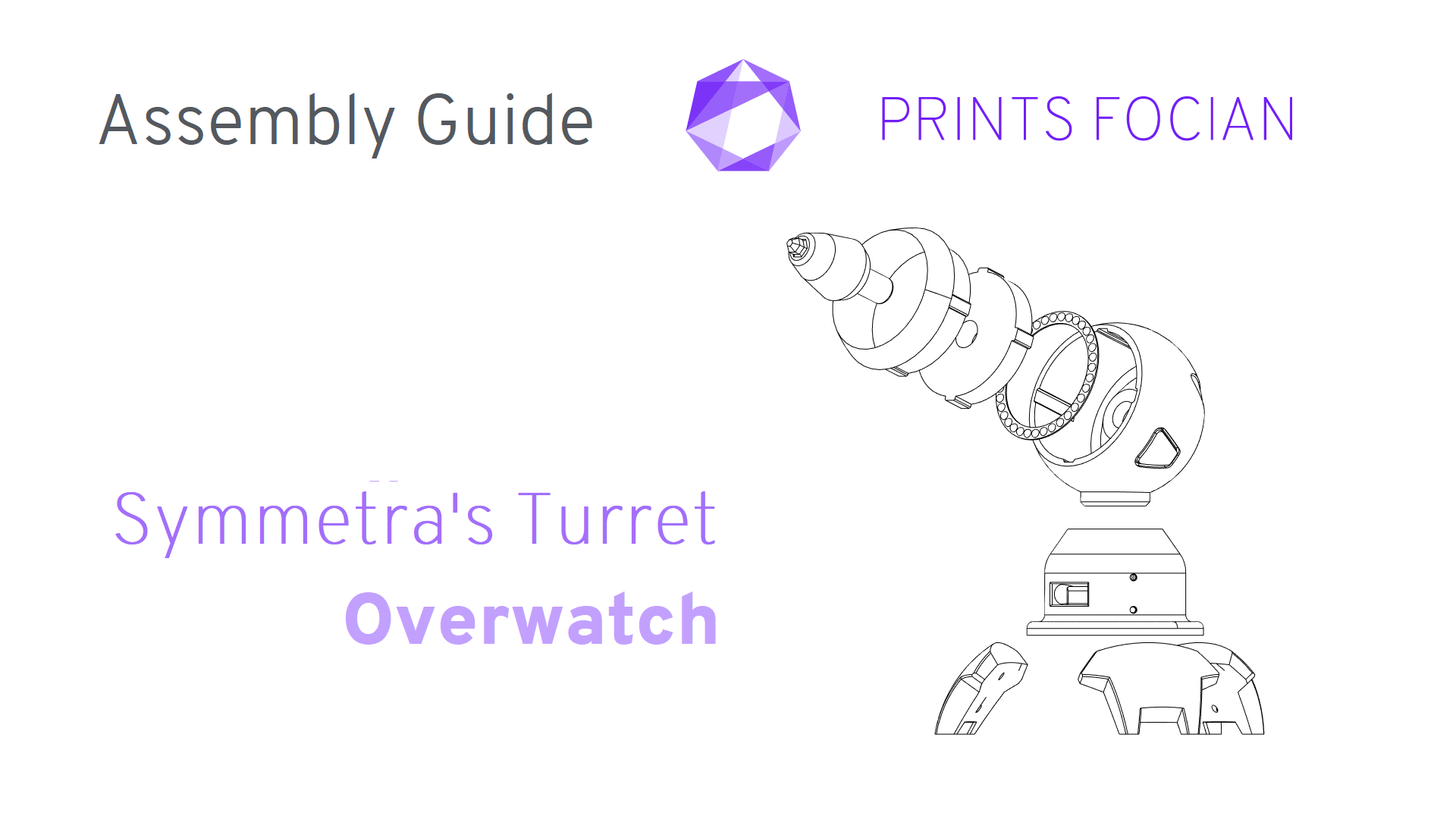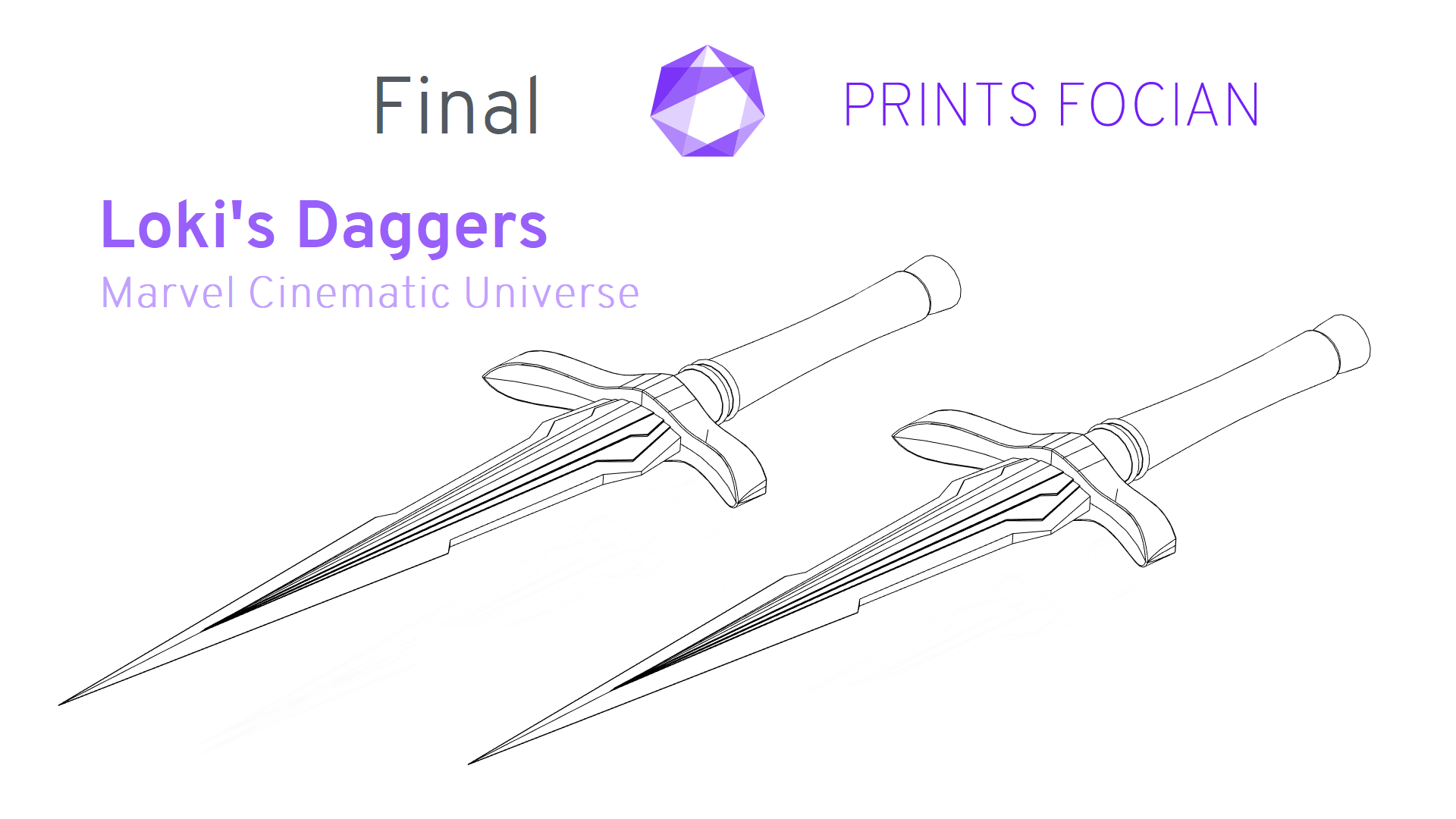Introduction
In this Assembly Guide I’ll be offering help and advice to get the most out of your purchased Print It Yourself or Raw Build Kit for the Final version of Symmetra’s Turret from Overwatch.
Check out the links below for the available versions:
- Print It Yourself
- Raw Build (Coming Soon!)
This guide is here to offer technical help to you in a build, if you would like to see more of this turret check out the Overview.
Whether you’re building this unofficial replica for decoration, or if you’re looking to use this as a cosplay prop, the information in this guide should assist you in making the best-finished product you can!
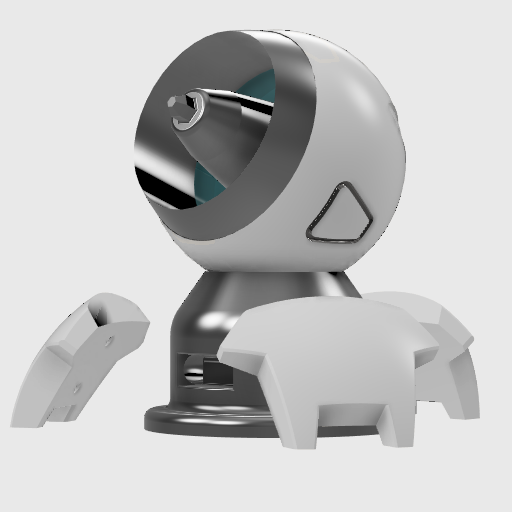
Difficulty
- Easy – An exceptionally easy project, most or all of the parts assemble in a very obvious manner. You’ll have difficulty going wrong on this project. Accessible to all build enthusiasts!
- Normal – This will mostly be a straightforward project. Some of the finer details may need to be checked against this Assembly Guide, but most build enthusiasts should have no issue creating a great-looking finished model.
- Heroic – This will have a fair few tricky moments. It will need more care and attention to get the best out of it when compared to easier models. I would not recommend this for a first project as the difficulty could be frustrating.
- Legendary – I do not recommend purchasing a piece of work that I have deemed as Legendary Difficulty unless you are an experienced builder or maker. Projects of this nature will need a lot of work, time and patience to complete. Technical knowledge about the material used will help, as will a versatile toolkit.


Package Contents
Raw Build:
Unless otherwise stated, all components are printed in PLA on an FDM Printer and when fully assembled, the approximate specifications are as follows:
- Height: 190mm
- Width: 220mm
- Depth: 220mm
- Weight: 750g
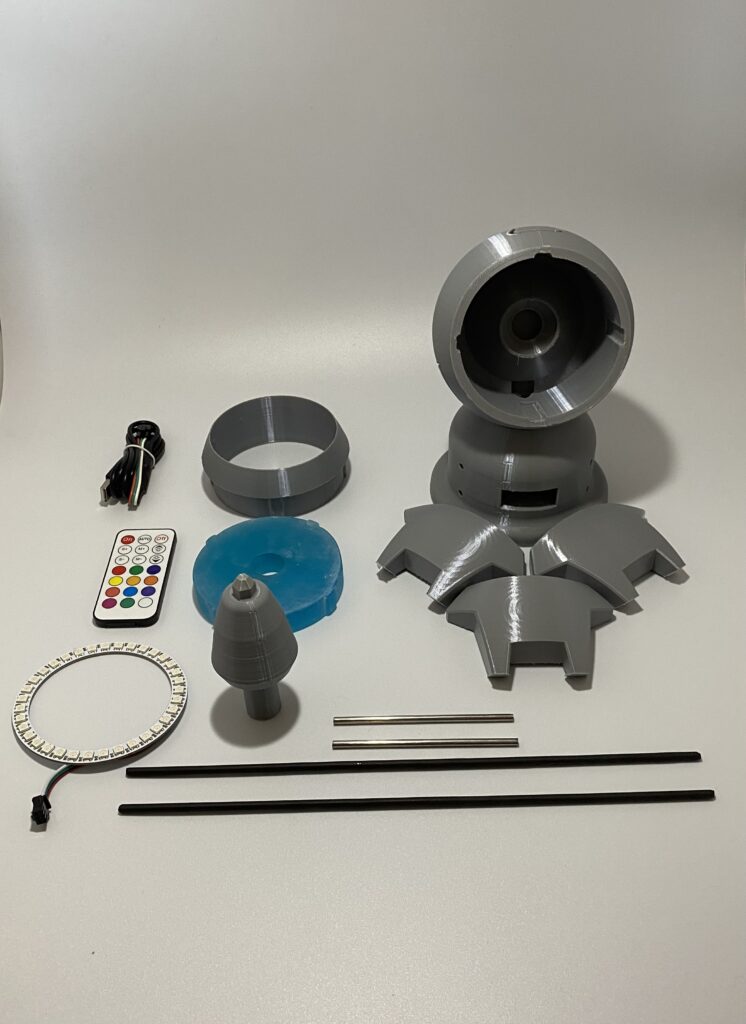
Breakdown of each component:
- Body
- Base
- Legs
- Ring
- Barrel
- Resin Diffuser
- 35 LED Ring Light
- IR Reciever
- Remote Control
- Support Rods
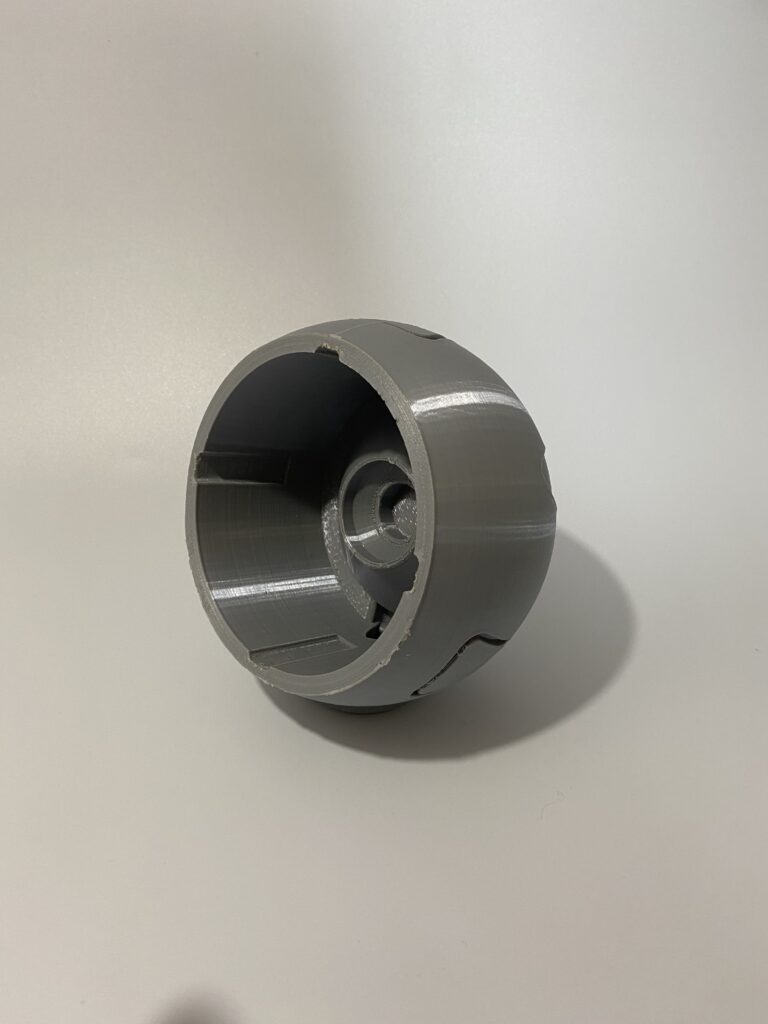
- Body
- Infill: 15%
- Weight: 223g
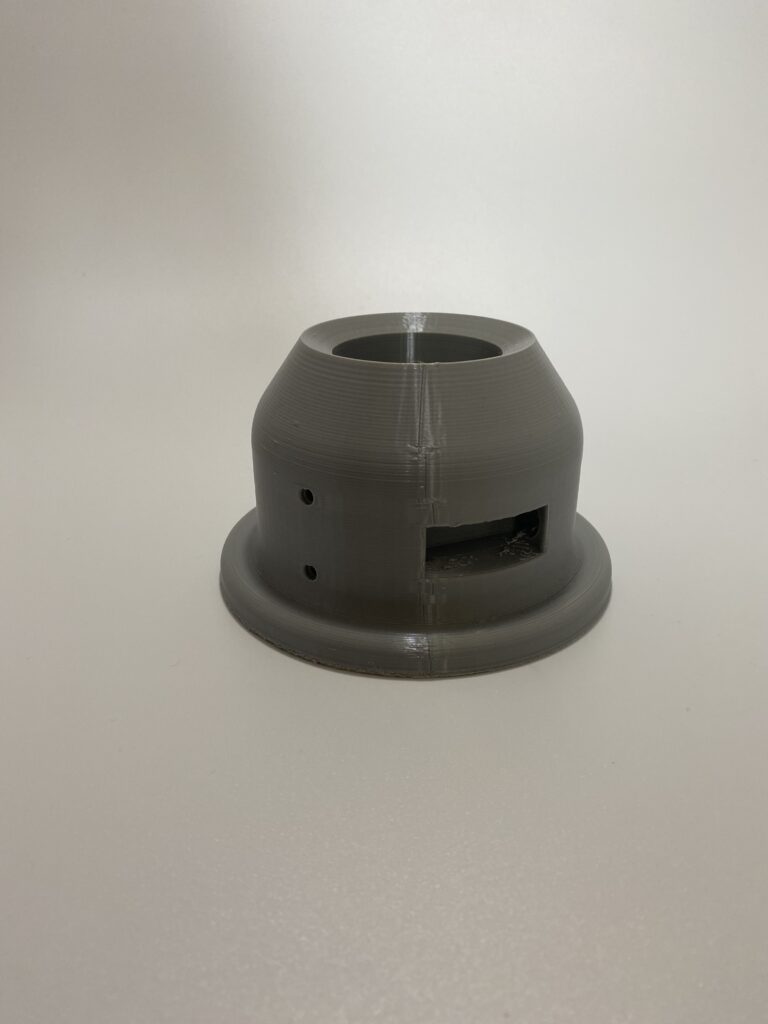
- Base
- Infill: 20%
- Weight: 171g
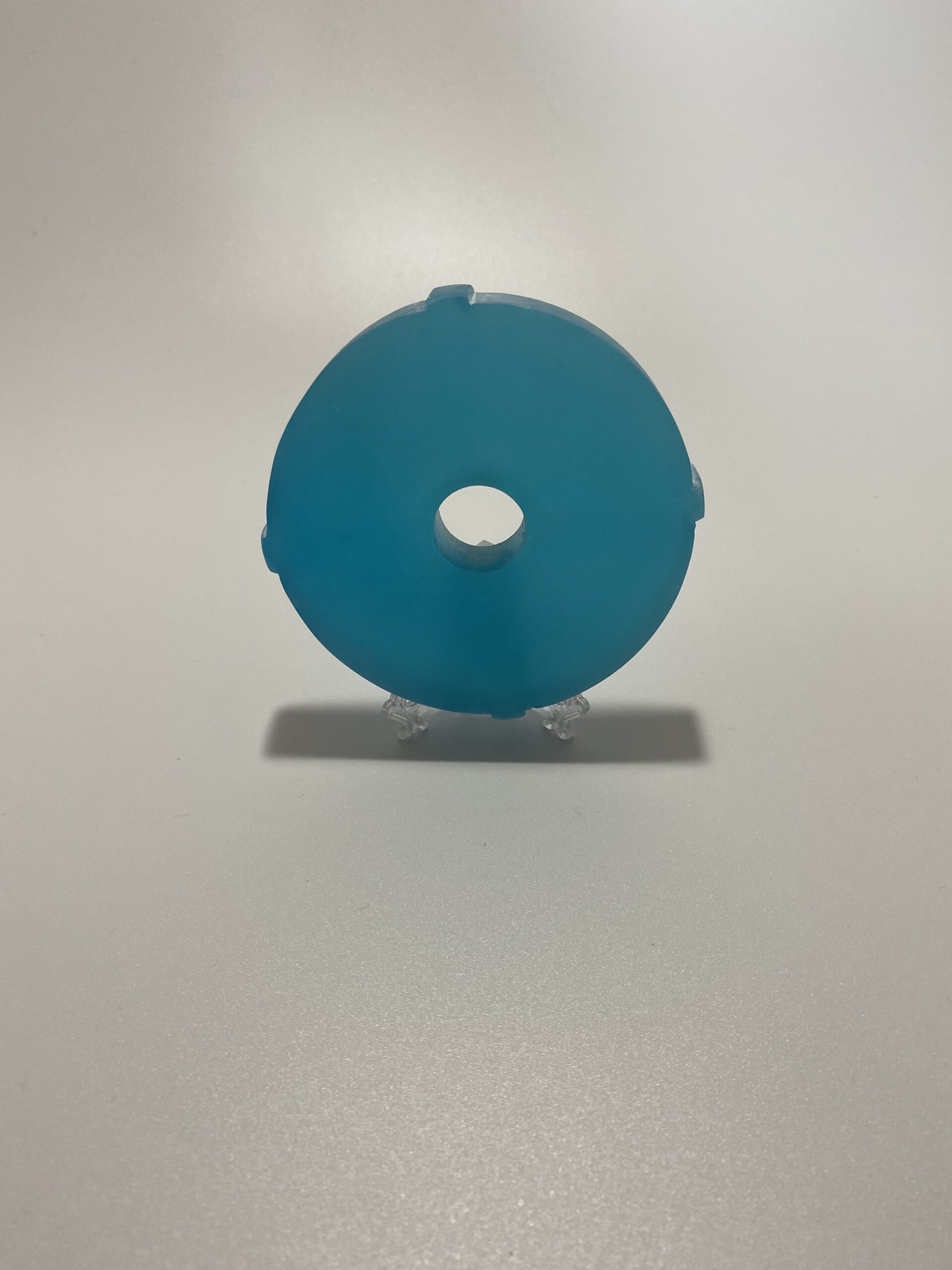
- Diffuser
- Infill: 100% – SLA Printed
- Weight: 130g
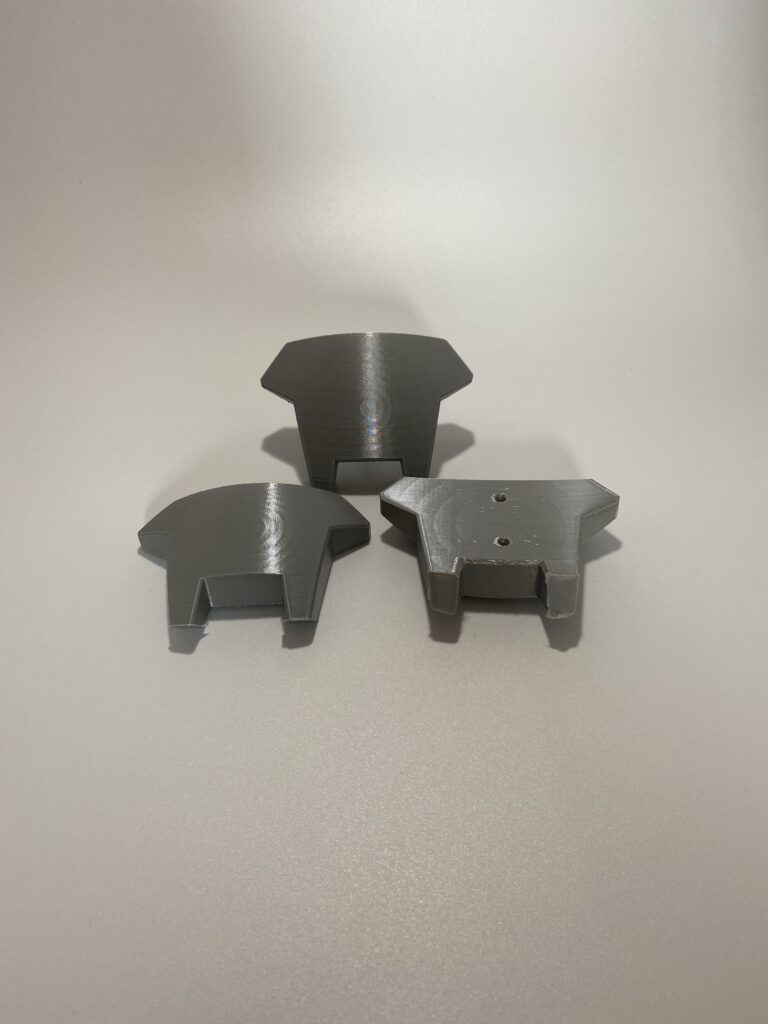
- Legs
- Infill: 15%
- Weight: 38g * 3
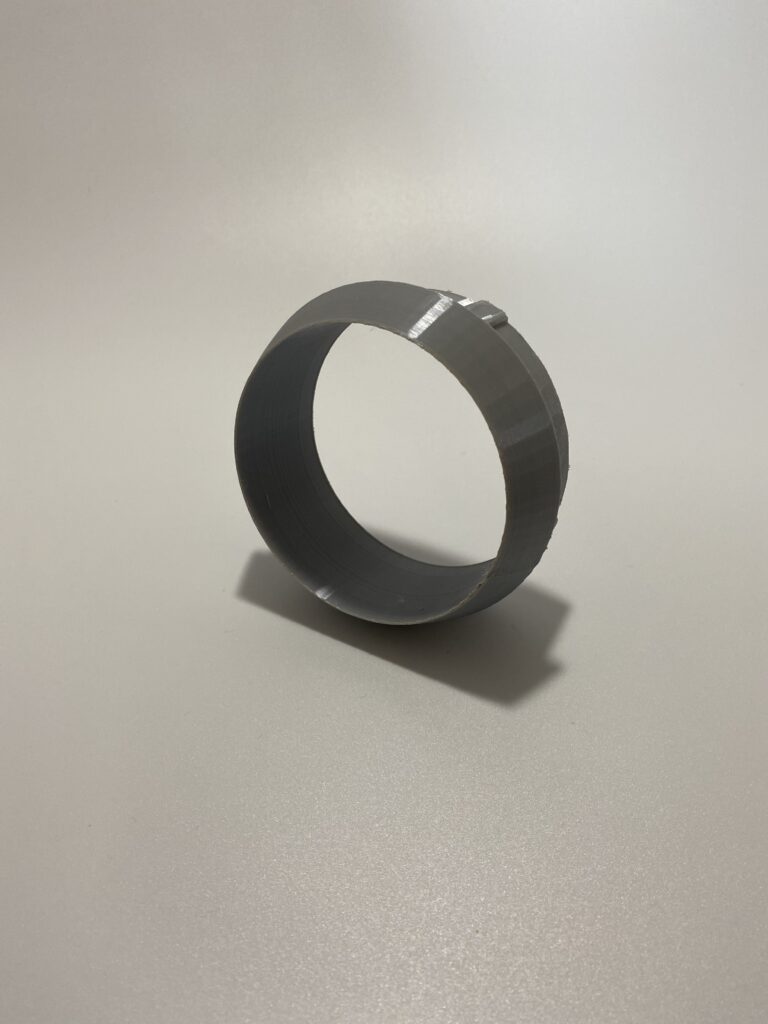
- Ring
- Infill: 25%
- Weight: 58g
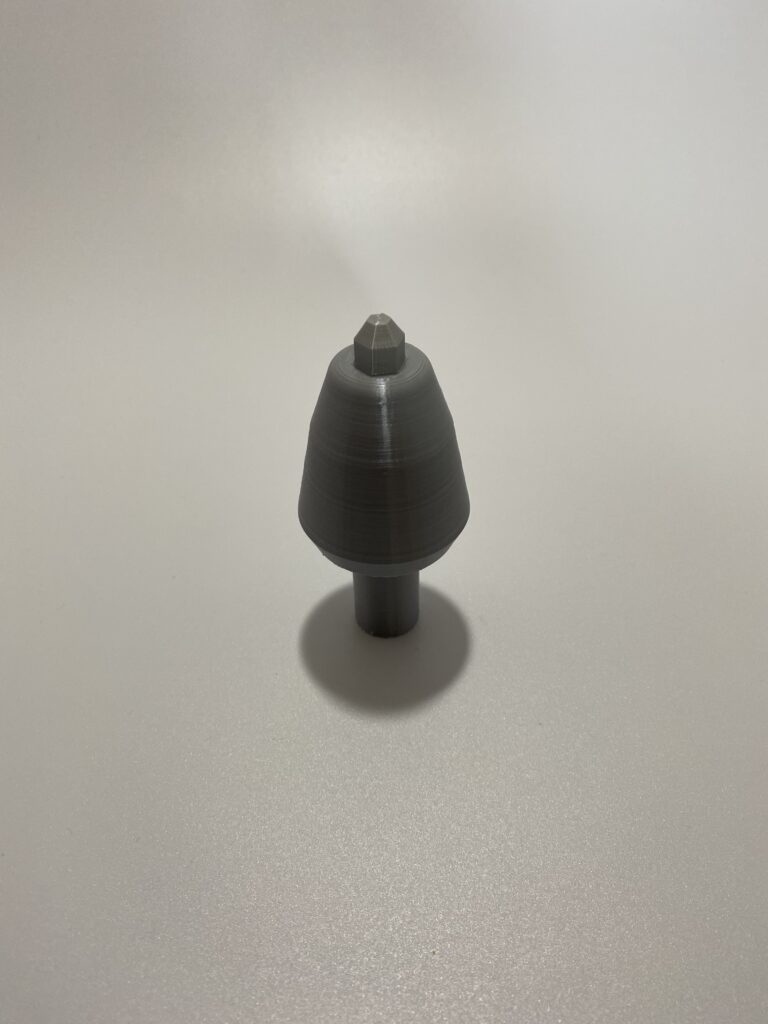
- Barrel
- Infill: 25%
- Weight: 40g
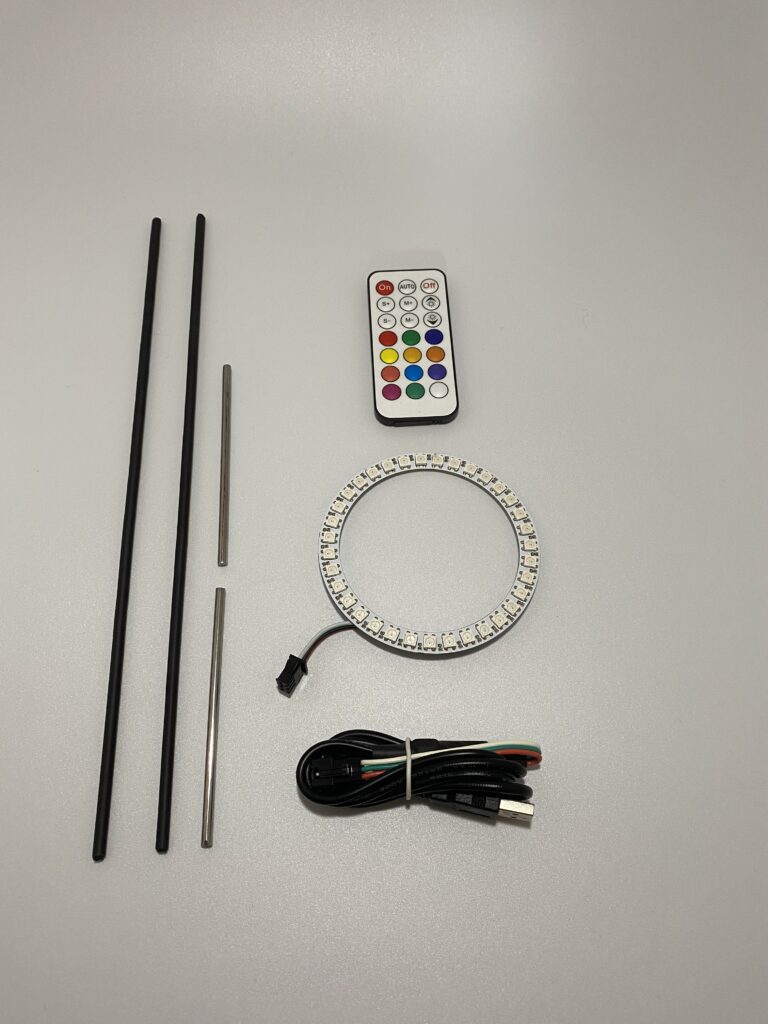
- Support Rods & Electronic Components
- Two 4mm * 100mm metal rods
- Two 4mm * 300mm heat shrink-wrapped wooden dowels
- 35 LED Ring Light
- IR Reciever
- Remote Control
Raw Build Support Rods
The support rods included for the Raw Build versions are:
- Two 4mm * 100mm metal rods
- Two 4mm * 300mm heat shrink-wrapped wooden dowels
Further details on the legs are included in the Assembly section below.
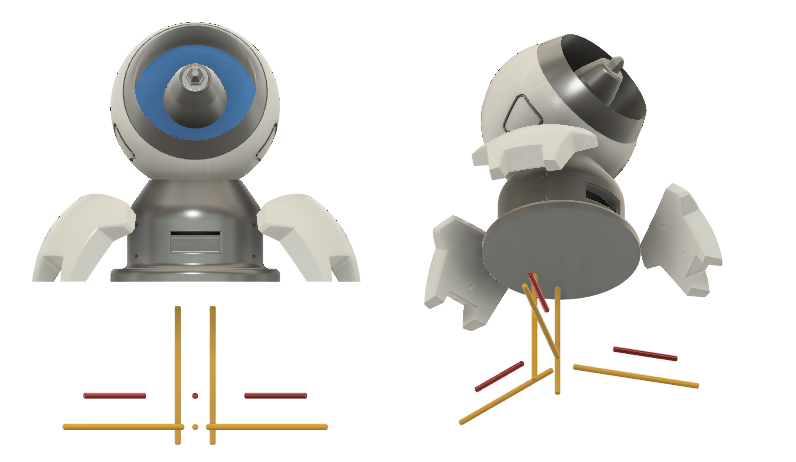
Print It Yourself:
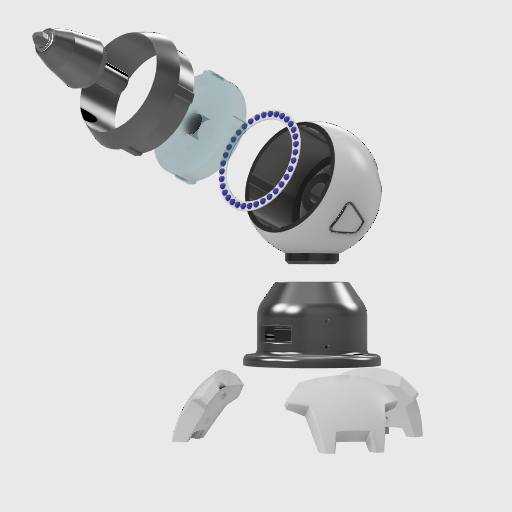
A single purchase of the Print It Yourself version of Symmetra’s Turret will grant you files to print the design, and you’ll also receive a BY-NC-ND 4.0 license for the files.
The following components with their respective [FILE_NAME] will be instantly available for download upon purchase:
- The Body [SYM_BODY]
- The Base [SYM_BASE]
- The Leg [SYM_LEG]
- The Diffuser [SYM_DIFFUSER]
- The Ring [SYM_RING]
- The Barrel [SYM_BARREL]
- Non Commercial License [SYM_PIY BY-NC-ND 4.0]
Print It Yourself Support Rods
The support rods recommended for the Print It Yourself version are:
- Gold: 5 Main Rod 4mm * 100mm
- Red: 3 Small Rods 4mm * 50mm
With the Print It Yourself version, you can choose different lengths of legs, but two of the 100m long rods are for the body to rest upon the base. I would recommend two metal rods for those supports to bear the small weight. Check the assembly section for how I make them with wooden dowel and heat shrink wire wrap.

License Type:
With my 3D files, you will also receive a non-transferable Creative Commons Licence. As standard, this will be the CC BY-NC-ND 4.0 license, although other types are available upon request.
The “human-readable” version of the license type can be found here.
I would like to highlight the Non-commercial part. “Non-commercial means not primarily intended for or directed towards commercial advantage or monetary compensation.” If you are using any designs of mine as part of your work (such as a cosplayer), then this is absolutely fine, and actively encouraged! Or perhaps you made an item a while back and now want to sell it on? You didn’t buy the item for the primary purpose of selling it on, again this is absolutely fine!
However, if you are purchasing the STL files with a view in mind to sell the output, raw or finished? This will require a commercial license.
Assembly
Unique Build Infomation:
LED Ring Light
For the Raw Build, the LED Ring Light is included. If you elect to Print It Yourself, you’ll need to source a 35 LED Ring, outer diameter 96mm, inner at 79mm.
Attaching the Legs
For use as the connecting rods between the base and legs, two shrink wrapped 4mm * 300mm pieces of dowel are included.
The recommendation is to have each leg have a 100mm rod on the lower part, and a 50mm one on the upper part. This will allow the included rods to cover one spare large and one small rods in case something goes wrong. A Normal pencil sharpener will make life a little easier for cleaning the ends and tapering into the recesses.
To refine the part:
- Measure and mark 100mm or 50mm
- Cut the rod at the mark – wire clippers or a small hacksaw recommended
- Use a knife to remove the additional shrink wrap (which will only fit between 1mm and 2mm into the hole)
- Remove 5mm, then 1mm at a time while testing the fit on the legs and upper support whole on the base
- Remove 35mm, then 1mm at a time while testing the fit on the lower support holes on the base.
Each of the support holes for the legs has a slight lip to accommodate the shrink wrap and hide the end of it, this is usually between 3mm – 5mm deep.
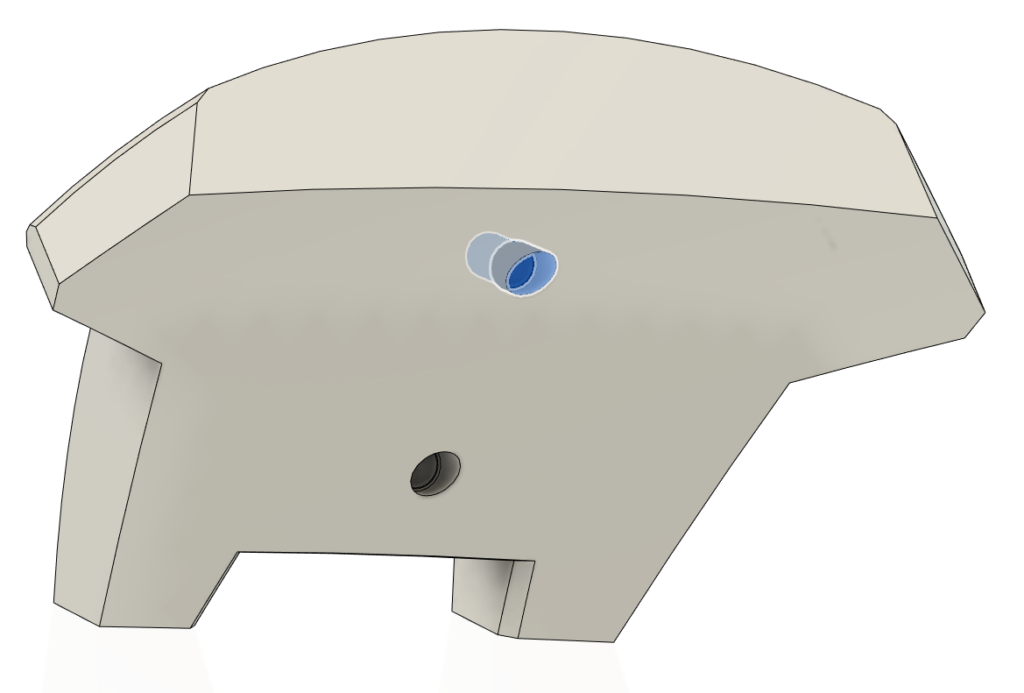
Light Diffuser
While the diffuser that is included can work beautifully after a little post-processing, I would strongly consider using it to make a silicone mould and casting resin to create your own unique work of art!
There are many helpful guides out there regarding silicone moulding and resin, and I hope to be able to show more of this when the Final Symmetra Turret article is completed.
For the Print It Yourself version, you have a number of options for the light diffuser:
- Print on an SLA Printer
- Print on an FDM Printer, but with a translucent filament
- Print on anything, then use the part to create a silicone mould and use as a resin cast
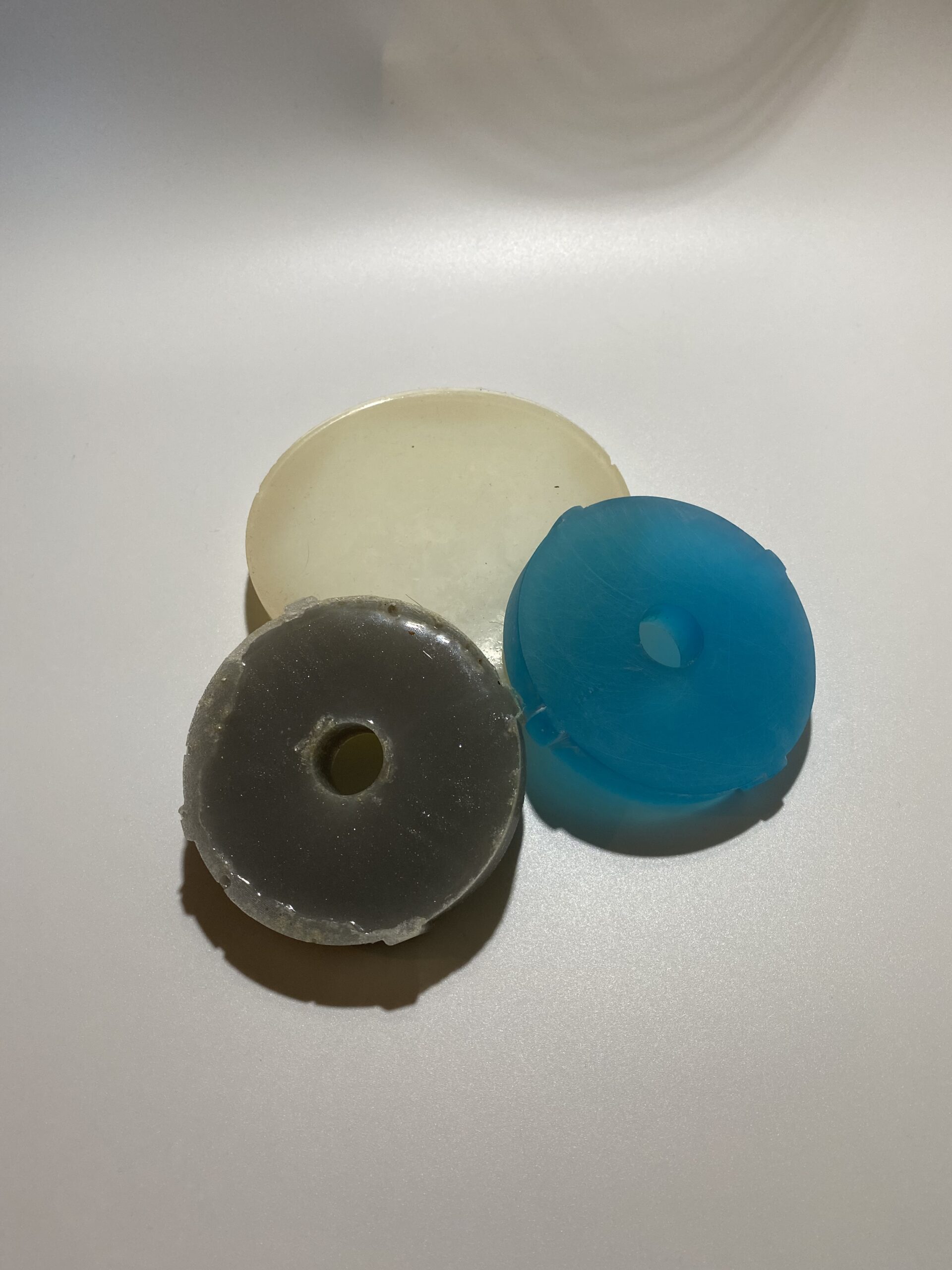
Adding the Wires
The wiring is very simple, but check out the video above if there is any confusion. please keep in mind that the types of connections present do not need to be forced into place at all, they should all click together without any struggle.
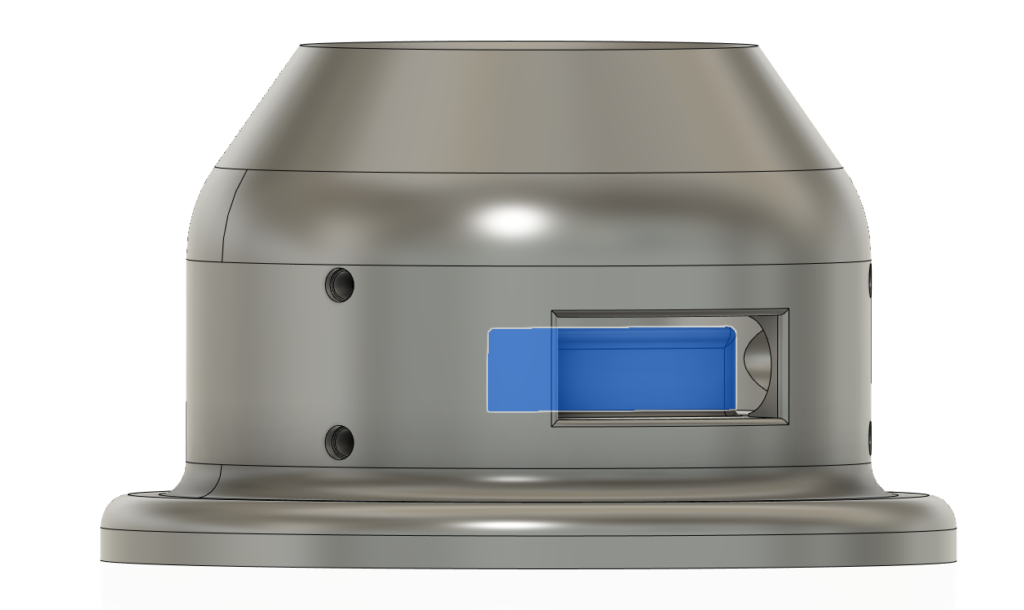
Inside the base, there is a small protrusion for the IR receiver to rest against as highlighted above. Using this and carefully pressing it into place (with the wires running along the grooves to either side) means you do not need to glue the component to keep it in place.
Support Removal:
I remove the majority of support material to check the part has printed properly and looks good. While I do remove the bulk of the support, I do not remove every part; areas highlighted below will definitely need attending where the support was attached:
The Ring
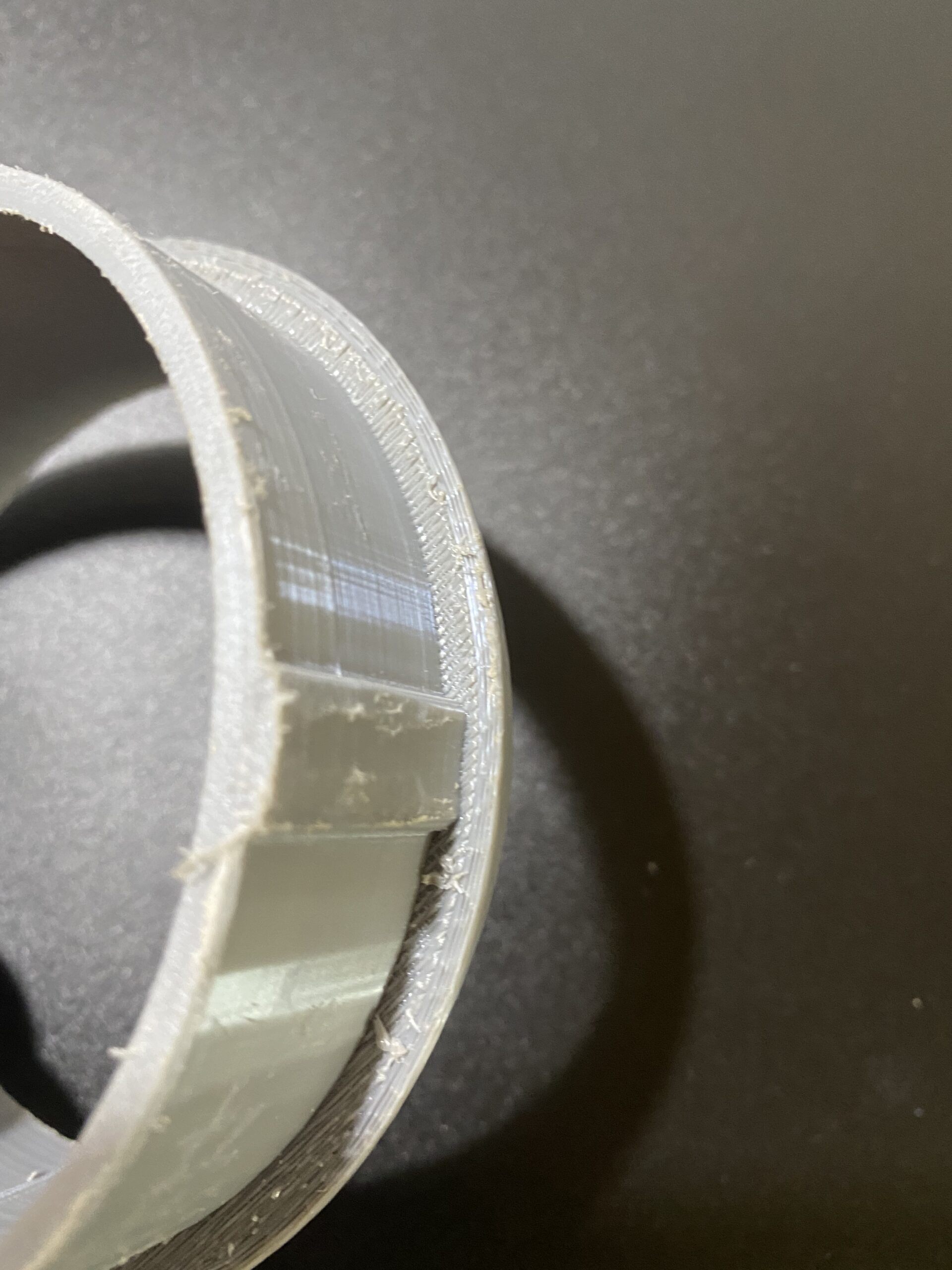
To get the ring flush with the body, pay extra attention to the flat underside of the lip that runs the circumference.
The Base
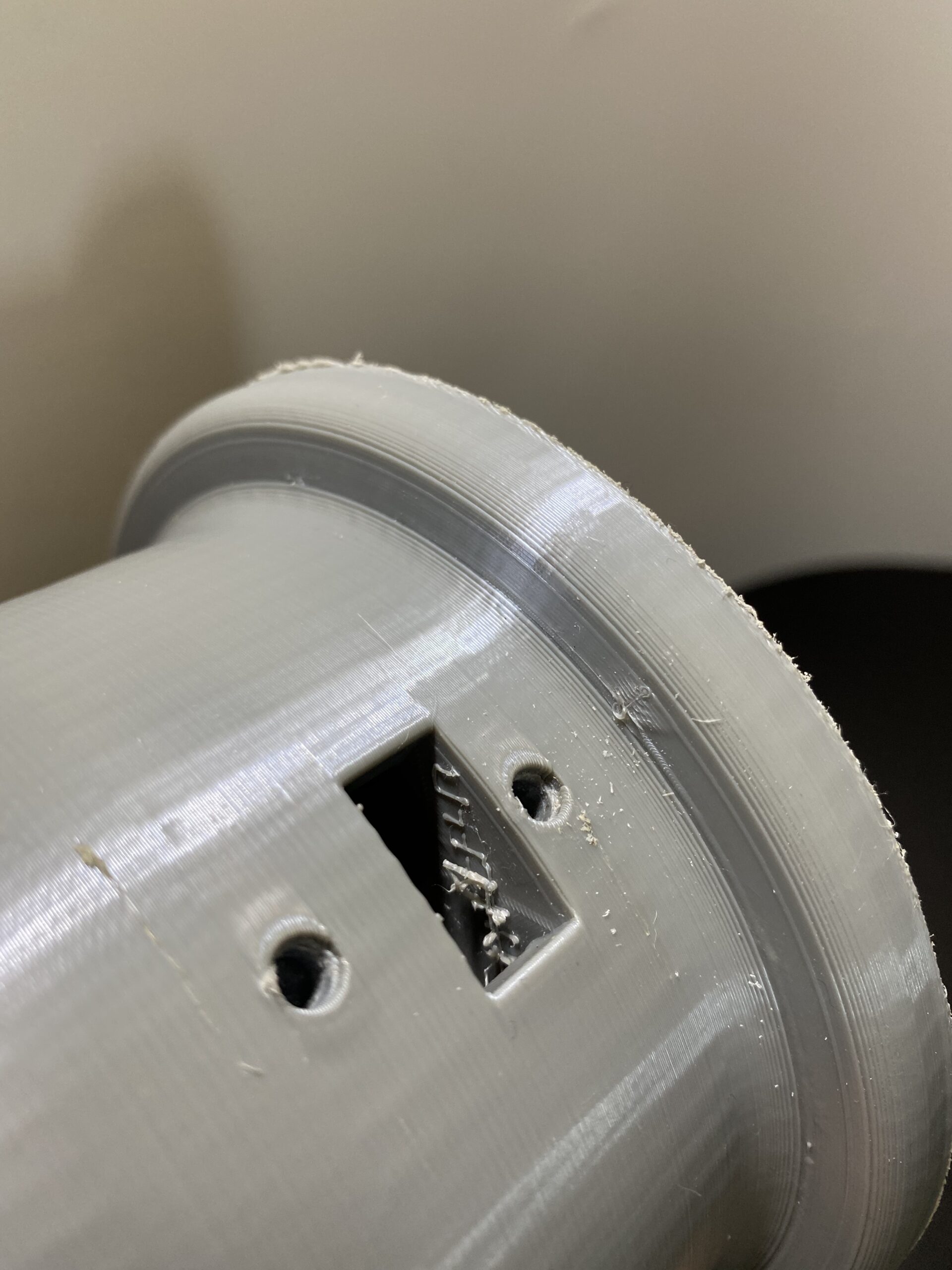
Some small parts of support are likely to remain inside the body. These can be ignored without issue, but better to know about them to begin with than further into a project!
General Information:
- Small hand tools are used in the support removal and some small marks may be present
- Ensure you wear eye protection when removing support material as it takes just the smallest amount of force to ding a shred of plastic into an eye
- Material colour is subject to change
- I make all the holes for the support rod with an additional 0.5mm tolerance on the diameter, and 2mm on the length
- All support rod holes on Raw Build Kits are drilled and checked with the correctly sized rod to ensure a good fit
- All support rods displayed are not essential and dependent on your end-use
- Consider lighter support materials, such as tubing or wooden dowel, if weight is a consideration
- For the Print It Yourself versions, I try and ensure that no single part is longer than 250mm
- If the metal rods you have are quite shiny, I’d recommend a gentle sanding with low grit sandpaper to help glue adhesion
Thanks for reading!
If you enjoyed this, you might like some of the related articles from the Overview, or perhaps a different Project altogether?
Love what you saw? Got a project in mind? Feel free to reach out and let me know!


